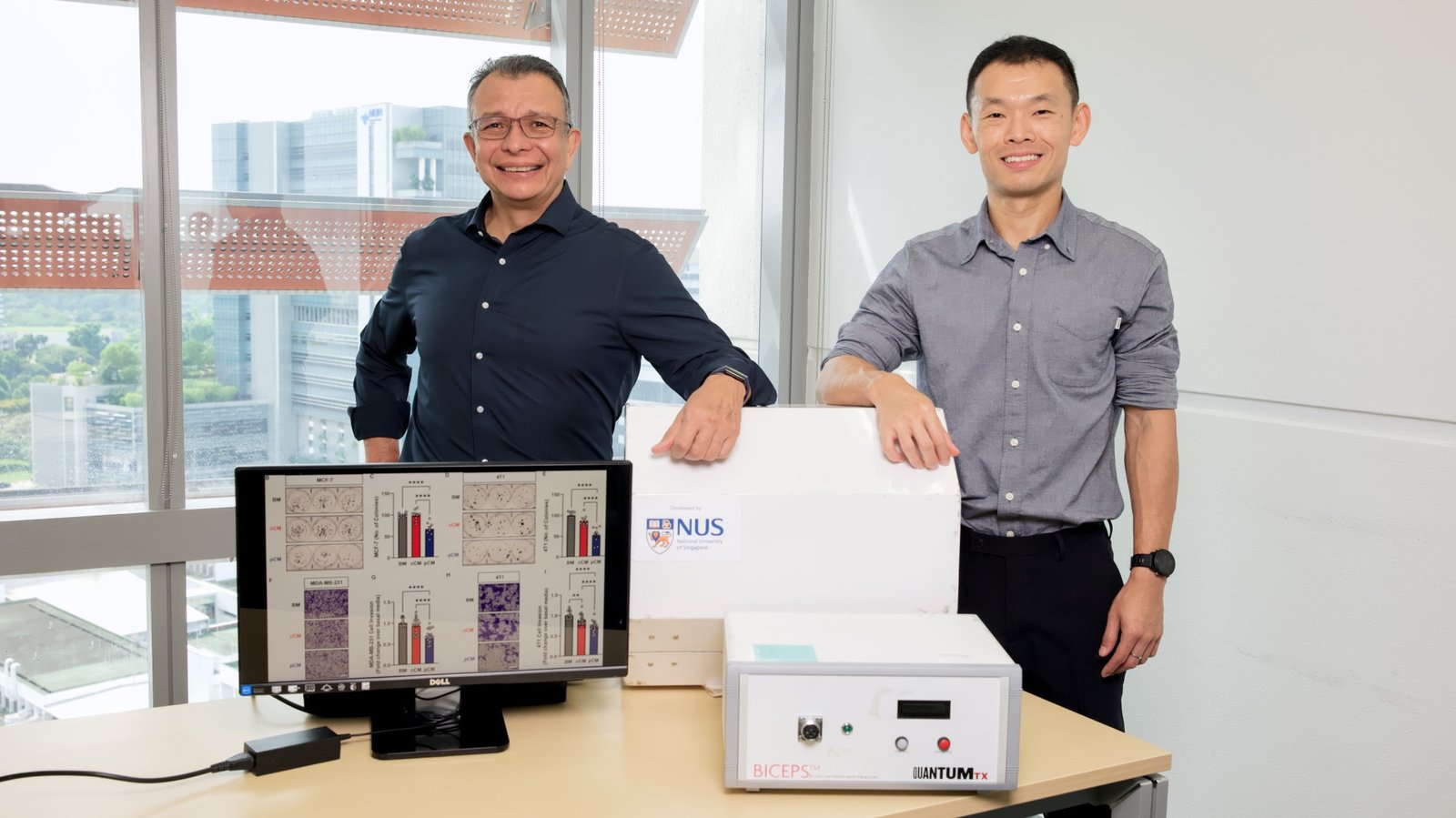
Image caption- Assoc Prof Alfredo Franco-Obregón (left) and Dr Alex Tai (right) from NUS Institute for Health Innovation & Technology
A team of researchers led by Associate Professor Alfredo Franco-Obregón from the NUS Institute for Health Innovation & Technology (iHealthtech) in Singapore, has unveiled a novel approach to stimulate muscle, by way of using brief and mild pulsed electromagnetic field exposure, to produce and release proteins possessing anti-cancer properties.
These soluble chemical molecules can then be carried in the blood stream to all regions of the body for system-wide protection against cancer.
In a previous study, Assoc Prof Franco-Obregón and his team demonstrated that briefly exposing isolated muscle cells to 10 minutes of low-energy magnetic fields was capable of boosting muscle development by stimulating their release of regenerative and rejuvenating proteins into their surroundings. In the body, these same muscle factors are also known to be protective against common diseases such as diabetes and cancer.
In the new study, the team explicitly investigated whether the same magnetic stimulation protocol could encourage the production and release of anti-cancer agents from the intact muscles in preclinical models and to identify and validate anticancer factors.
Following up on the promising results generated from this preclinical study, the NUS team is initiating clinical trials to assess the anti-cancer potential of muscle-targeted magnetic therapy in humans and to corroborate the anti-cancer effects of HTRA1 (a previously suspected tumour suppressor) in humans with breast and other cancers.
The team also looks forward to conducting further studies to identify other anti-cancer biomarkers produced and released by muscle cells, which could serve as potential targets for the development of drugs and therapeutics to treat cancer.




